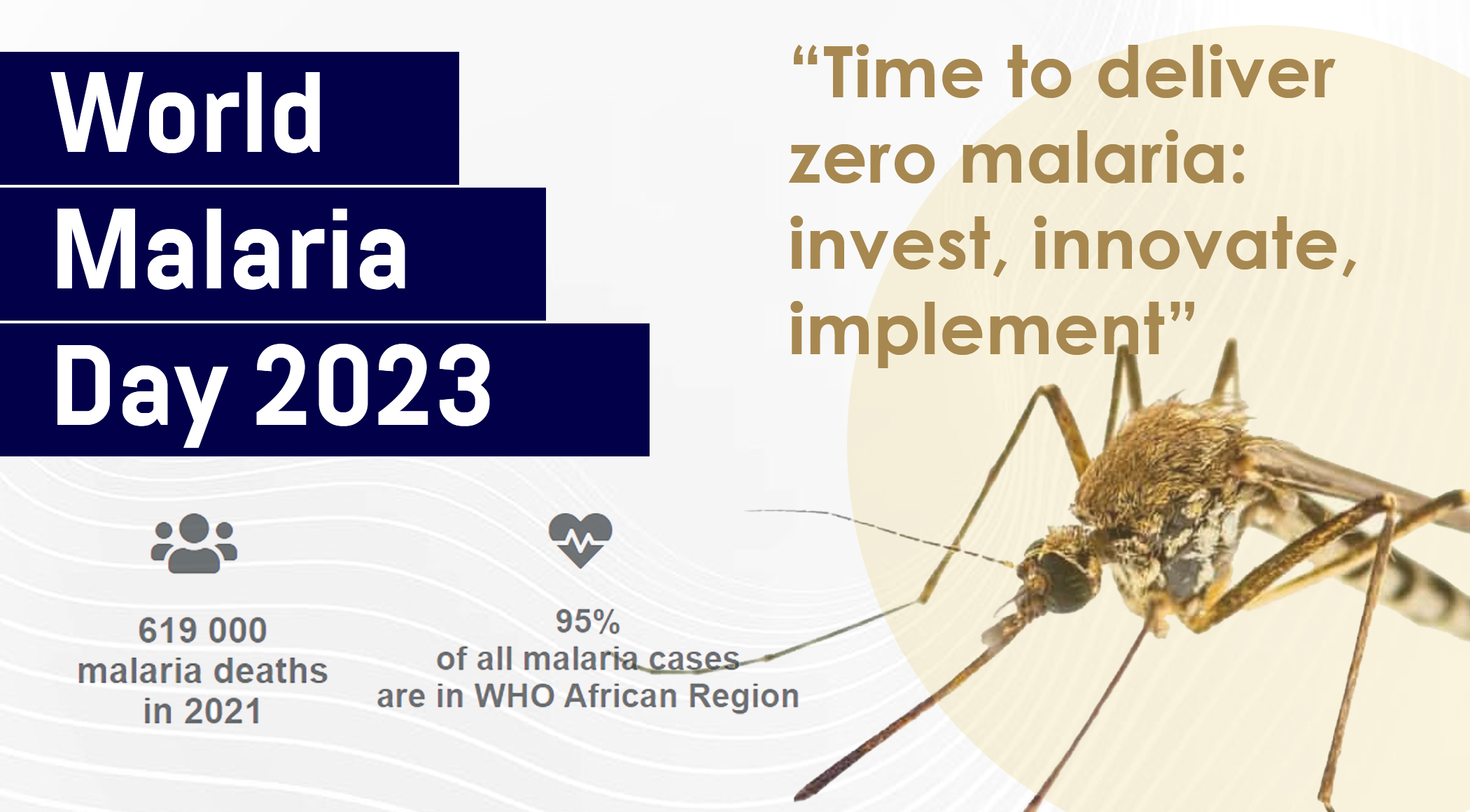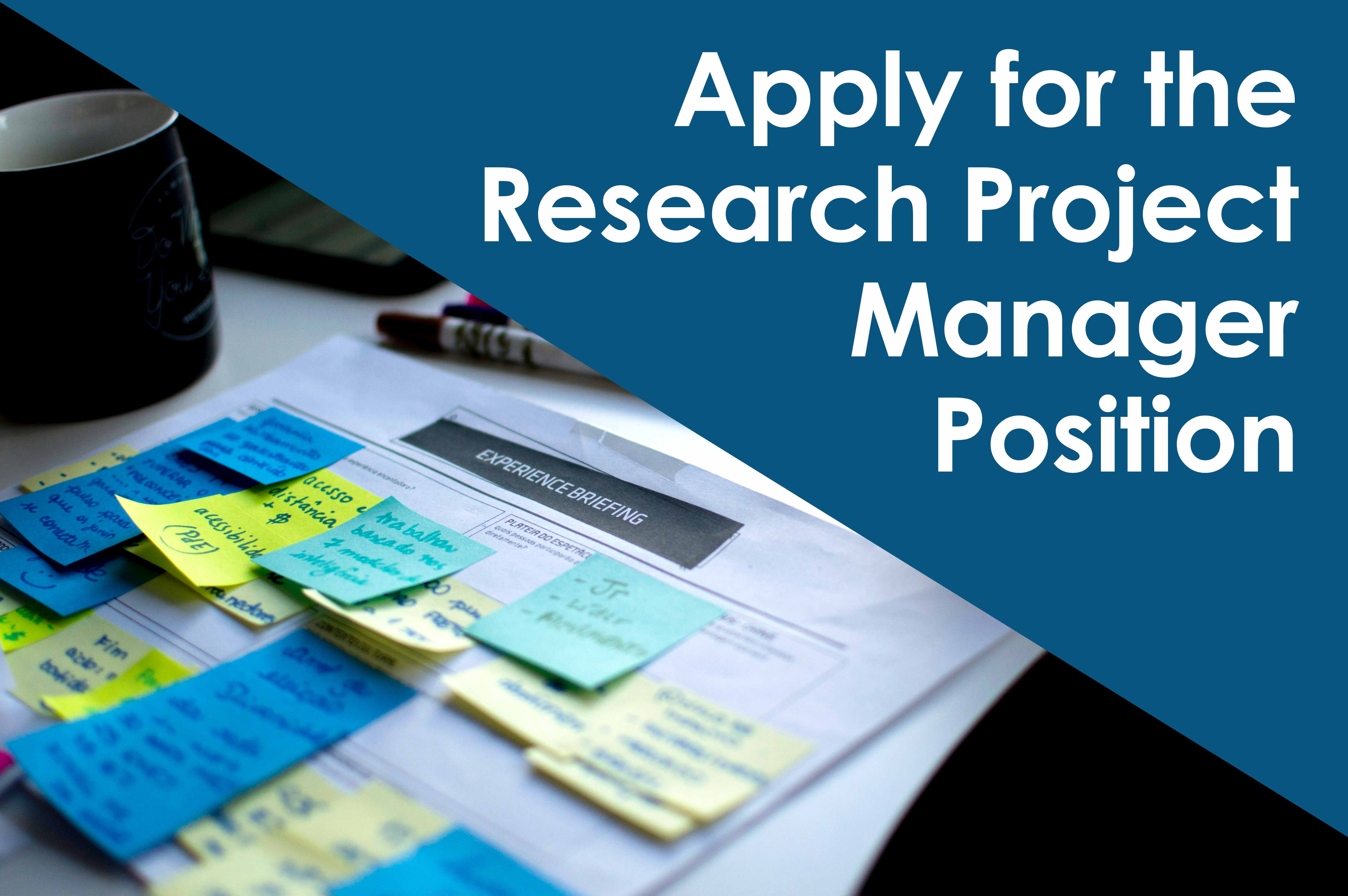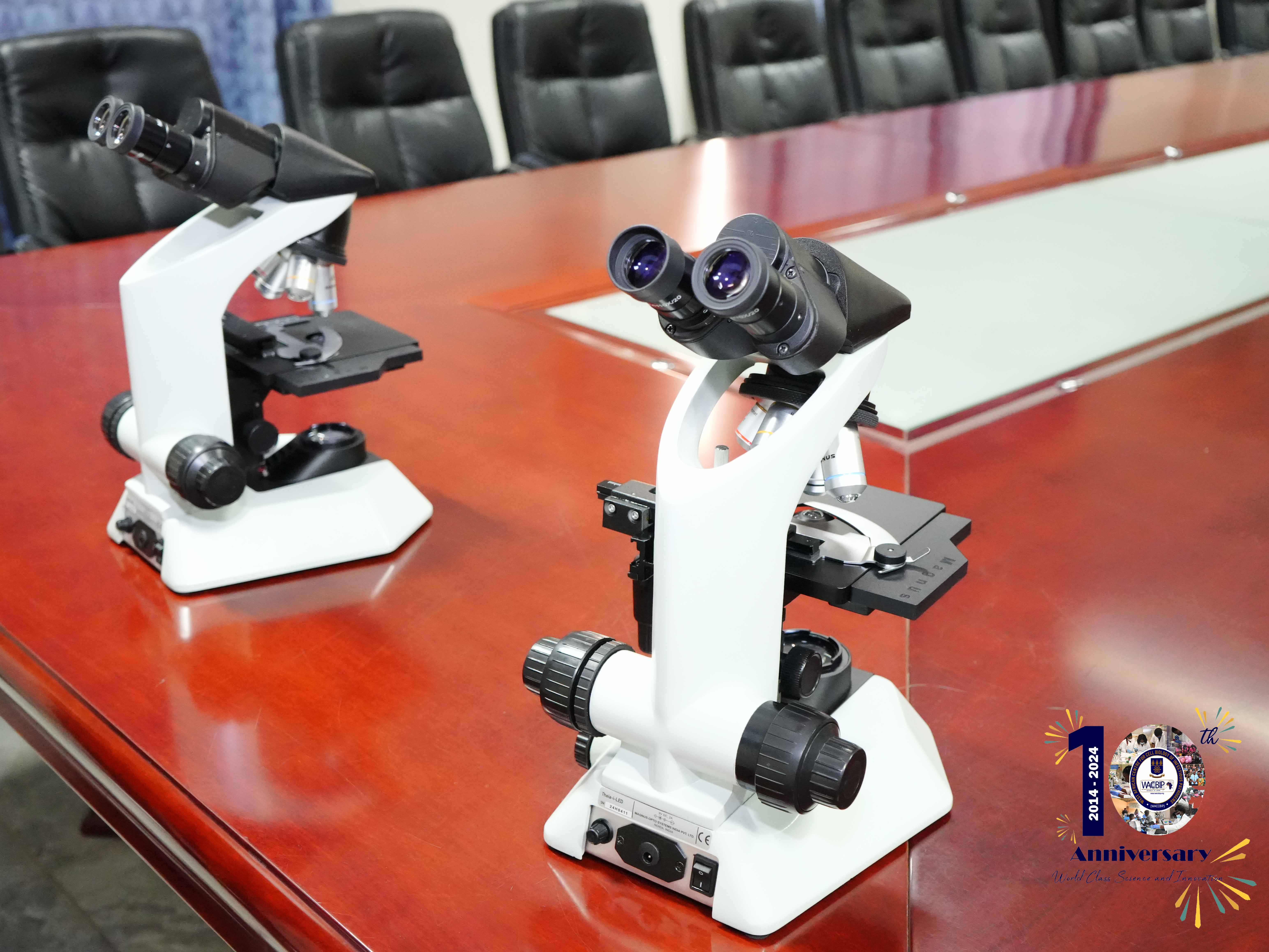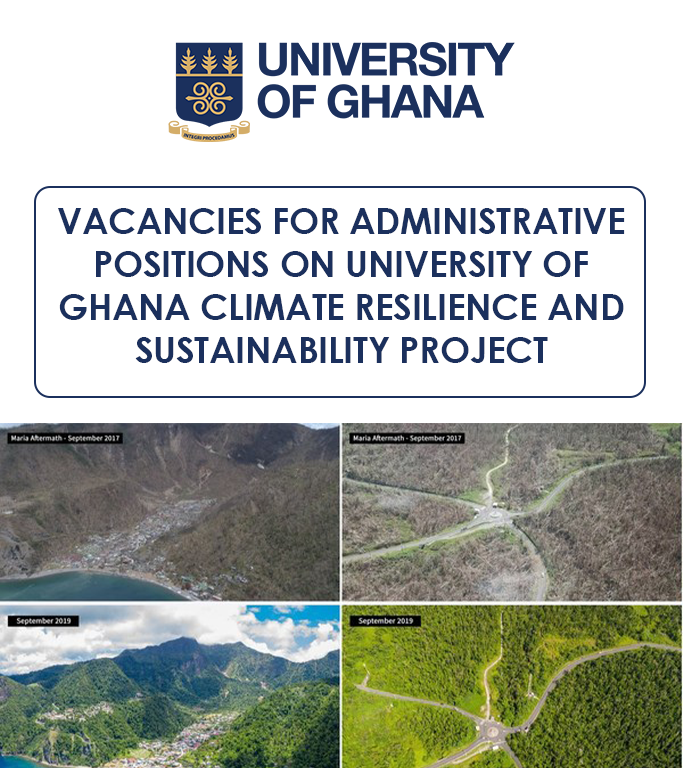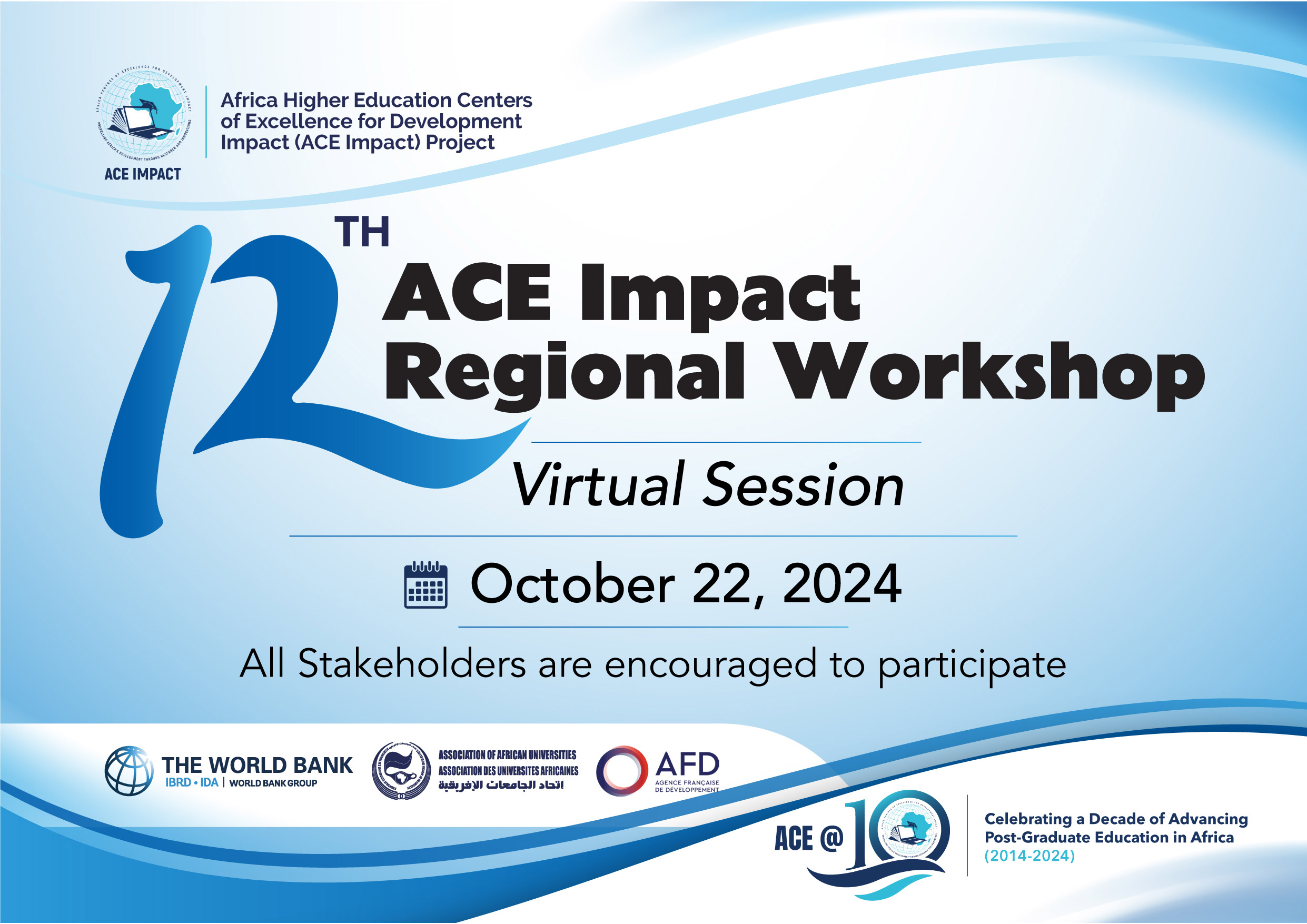Malaria is a deadly disease that affects millions of people worldwide, particularly in sub-Saharan Africa. Despite efforts to eradicate the disease, it continues to be a major public health concern, causing thousands of deaths every year.
Strategic intervention over the years has led to the decline of malaria prevalence in Ghana. However, these gains are threatened by the ability of the malaria parasite(s) to develop resistance to the antimalarials used to treat malaria and malaria vector mosquitoes to develop resistance to the insecticides used to control them. There is also diagnostic resistance due to mutations in the malaria parasite that result in the absence of a target protein.
To address these genetic threats and support the National Malaria Elimination Programme with data for informed decision-making, the West African Centre for Cell Biology of Infectious Pathogens (WACCBIP), in collaboration with the National Malaria Elimination Programme (NMEP) launched a malaria genomic surveillance programme in Ghana in 2018 funded by National Institute for Health and Care Research (NIHR), UK. The programme aims to establish the laboratory infrastructure, sampling framework and capacity for malaria genomic surveillance of antimalarial drugs and insecticide resistance.
As part of the programme, WACCBIP has commenced a 4-day stakeholder engagement, project protocol training and capacity building workshop for National Malaria Elimination Program (NMEP) sentinel facilities among others. The workshop, which started on Tuesday, April 25, 2023, brought together a diverse group of biomedical scientists from across Ghana to train them on best practices in sample collection and processing for malaria genomic surveillance.
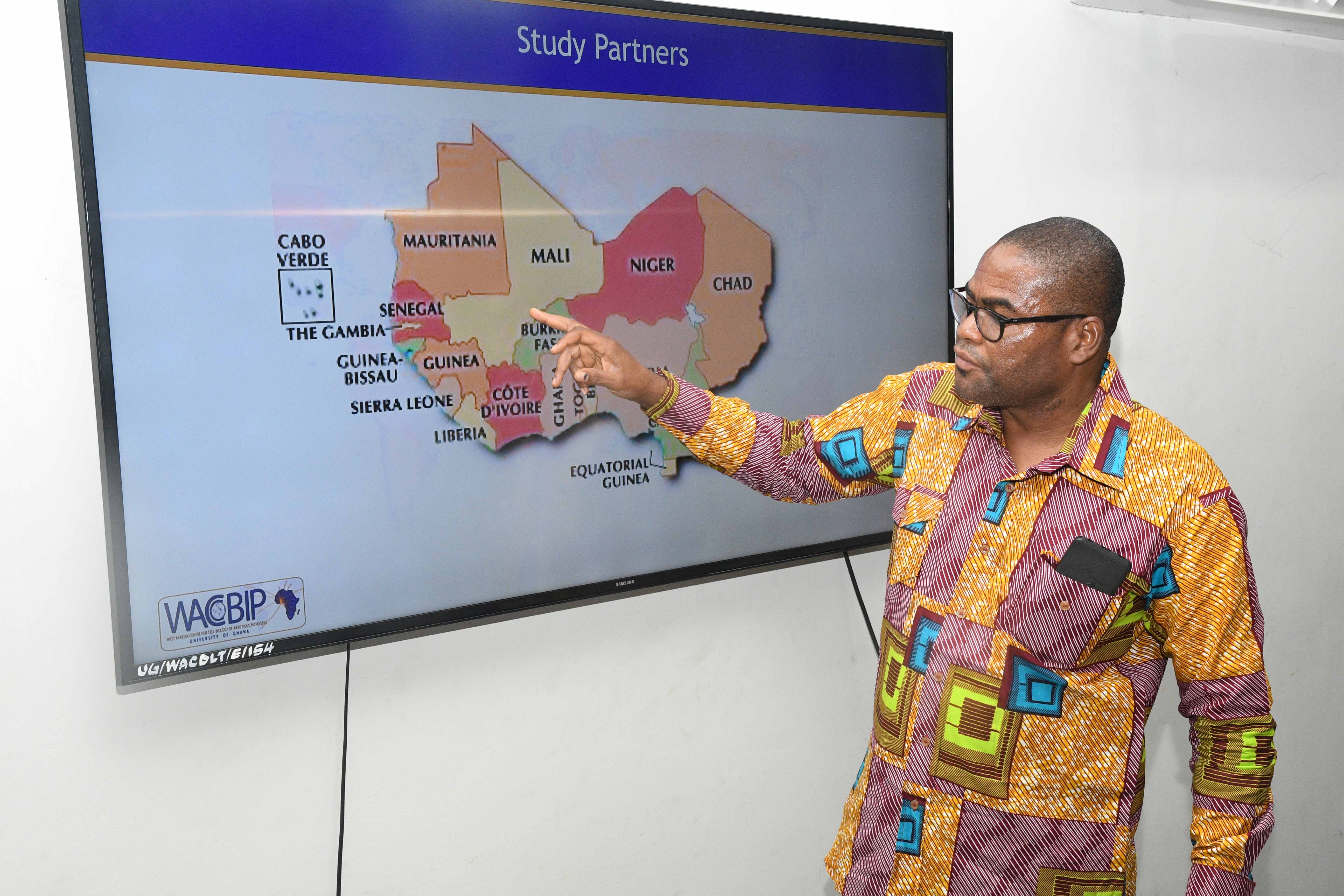
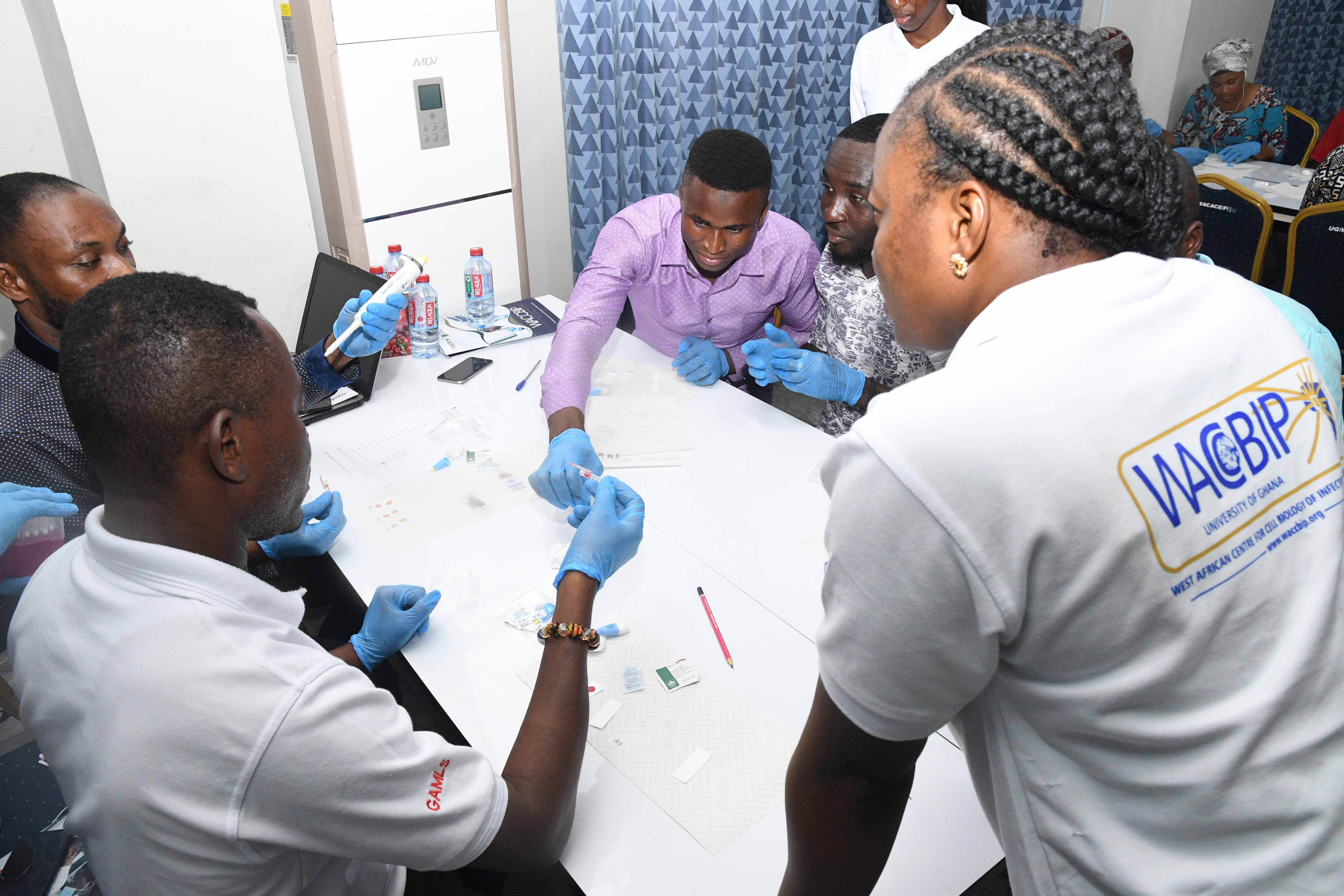
Figures 1&2: Highlights on the overview of the malaria genomic surveillance programme by the West African Centre for Cell Biology of Infectious Pathogens (WACCBIP) and National Malaria Elimination Programme (NMEP).
The workshop organisers and facilitators included Professor Gordon Awandare, Founding Director of WACCBIP and Pro Vice Chancellor for Academic and Student Affairs, University of Ghana; Dr Lucas Amenga-Etego, Senior Research Fellow, WACCBIP, Dr Yaw Aniweh, Senior Research Fellow, WACCBIP; Dr Collins Morang’a, Postdoc, WACCBIP; Francis Dzabeng, Data Manager, WACCBIP; Joyce Ngoi, Next Generation Sequencing (NGS) Manager; Haruna Abdul; Kukua Bandoh; Violette M’cormack; Ahmed Osumanu; Angela Gyamfi; Priscilla Acquah-Jackson; Edem Adika; and Solomon Atampah.
Dr Peter Quashie, Deputy Director in Charge of Research at WACCBIP, in welcoming the participants highlighted the mission, vision and some achievements of the Centre. The workshop's key presentation by Dr Lucas Amenga-Etego provided a general overview of the NIHR project, touching on the achievements of the first phase, the roadmap for the second phase, the impact of antimalarial and insecticide resistance, and the need for national and regional collaboration.
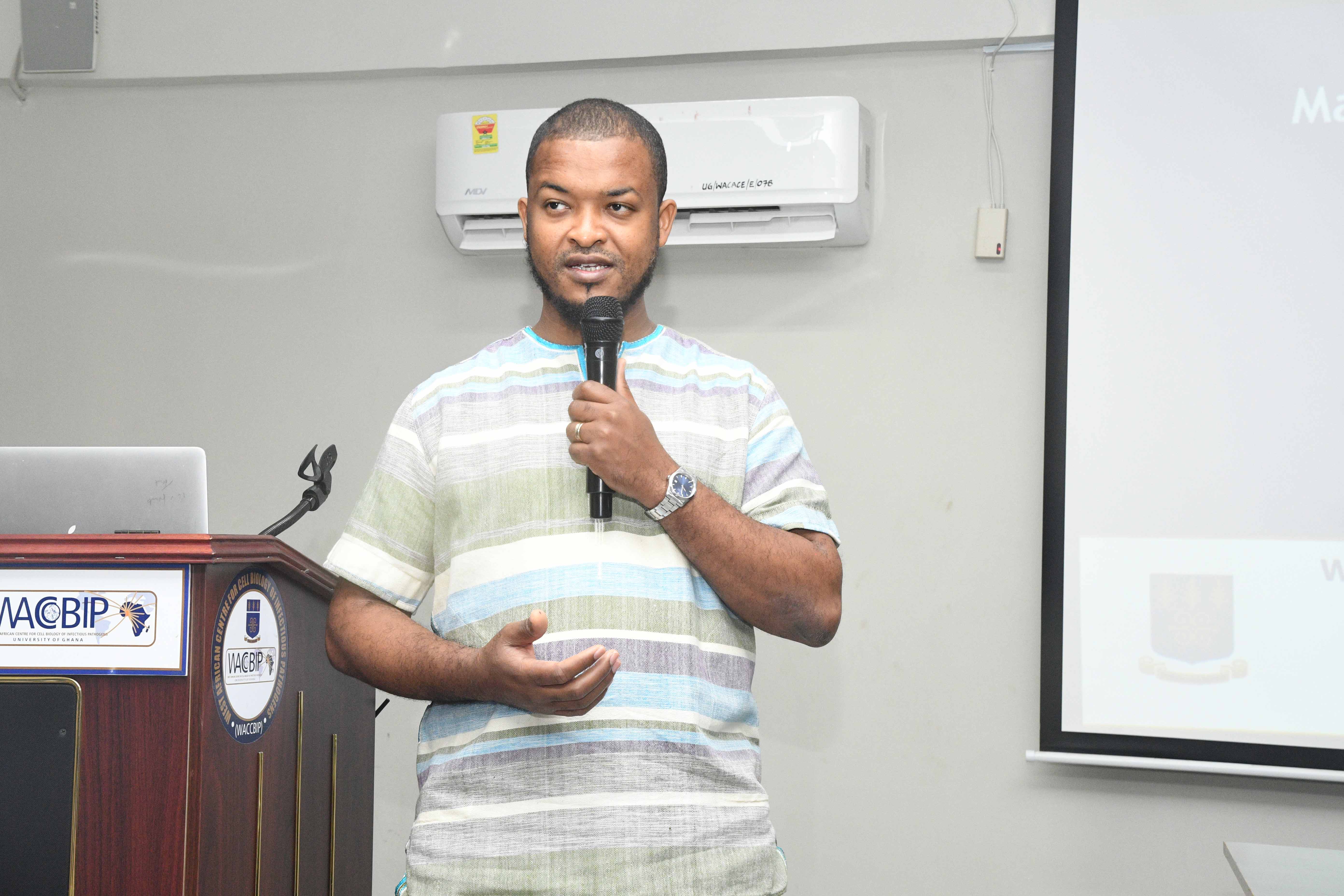
Figure 3: Dr Peter Quashie, Deputy Director in Charge of Research at WACCBIP, welcomes participants and briefs them on WACCBIP's activities.
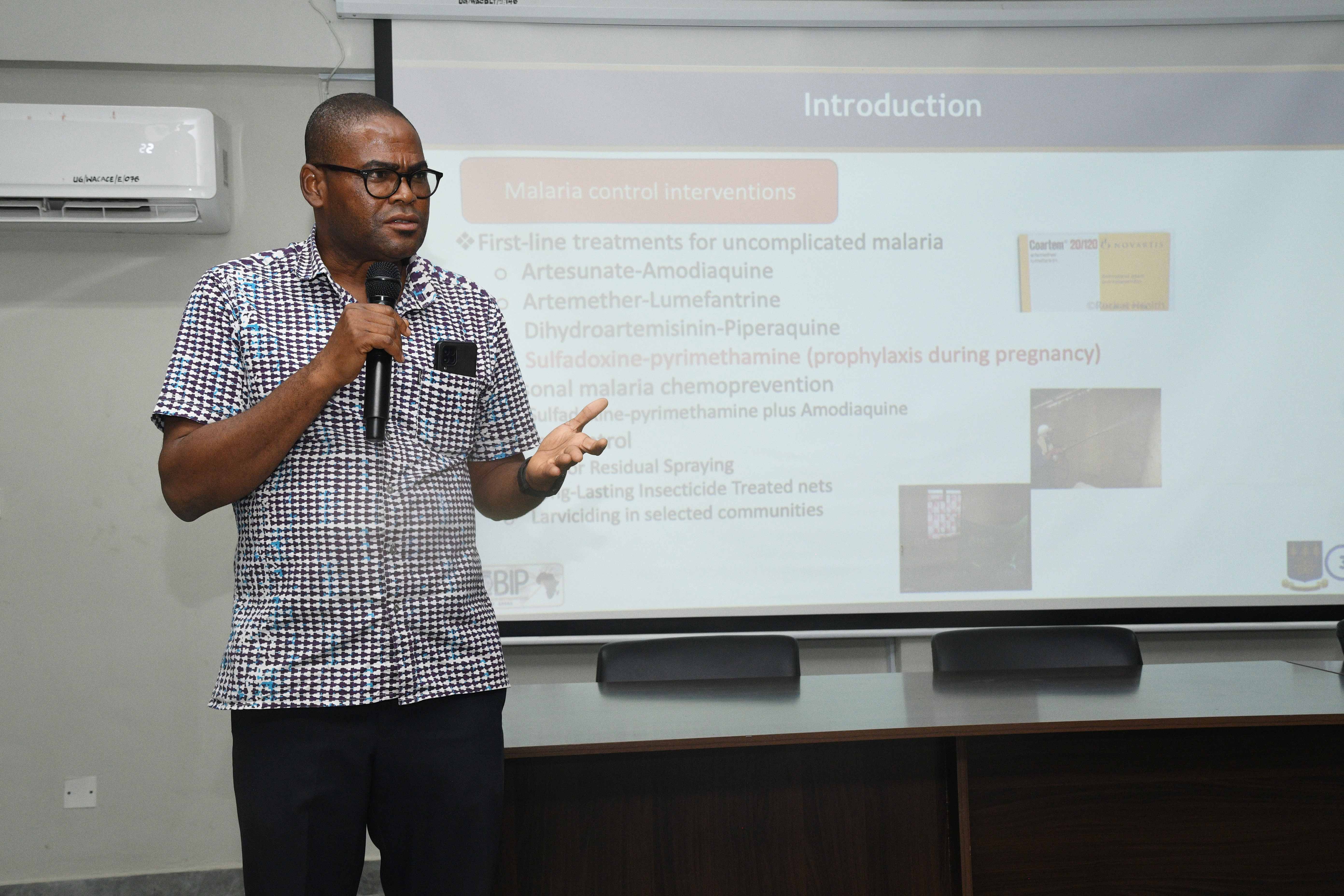
Figure 4: Dr Lucas Amenga-Etego, Senior Research Fellow at WACCBIP provides a general overview of the NIHR project.
Some of the topics discussed during the first and second days of the workshop included the preparation of sample collection kits, meta-data collection, Dried Blood Spots (DBS) preparation procedures, preparation of thick and thin smears, and malaria microscopy, DNA extraction, library preparation, Illumina amplicon sequencing, MinION sequencing, and data processing.
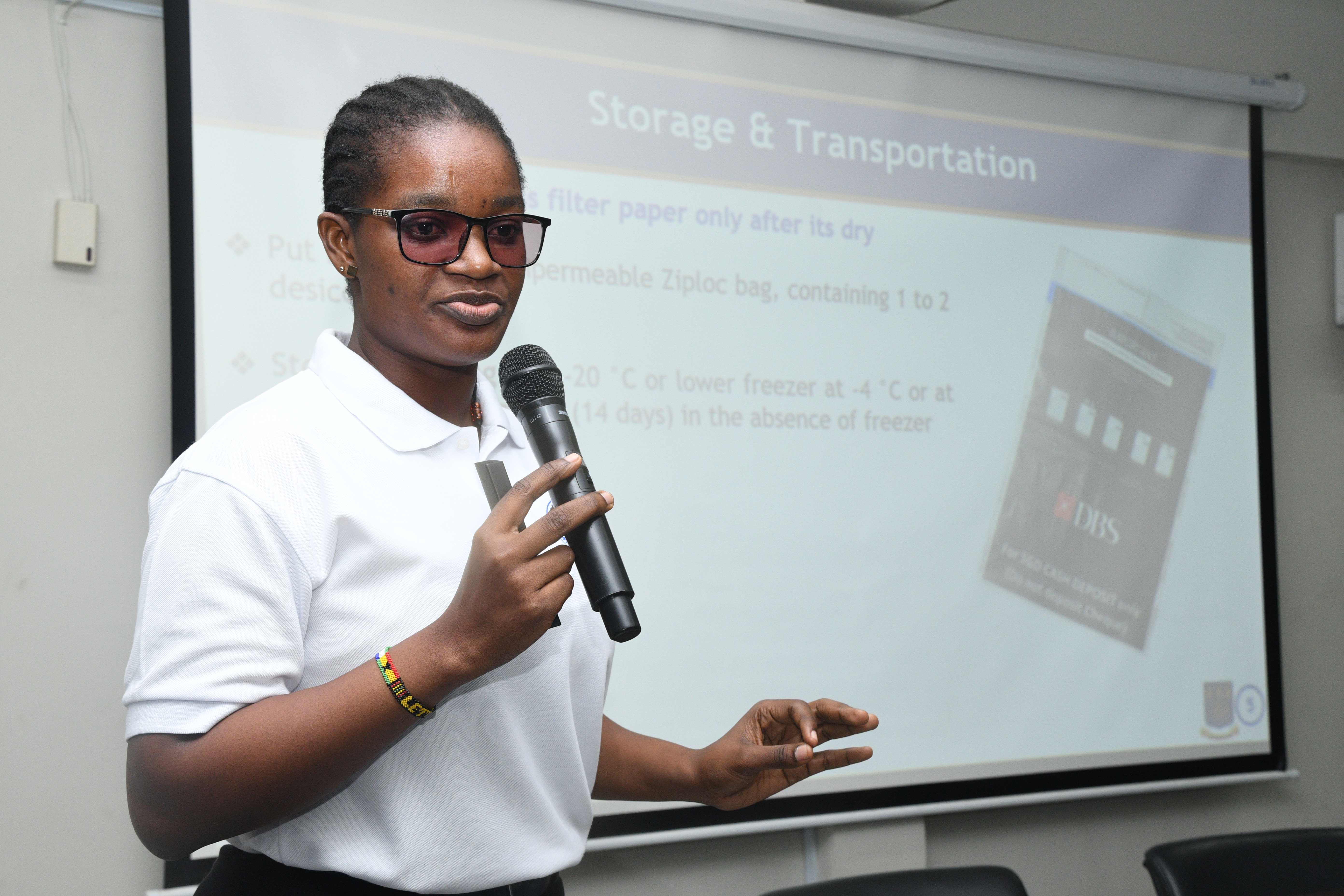
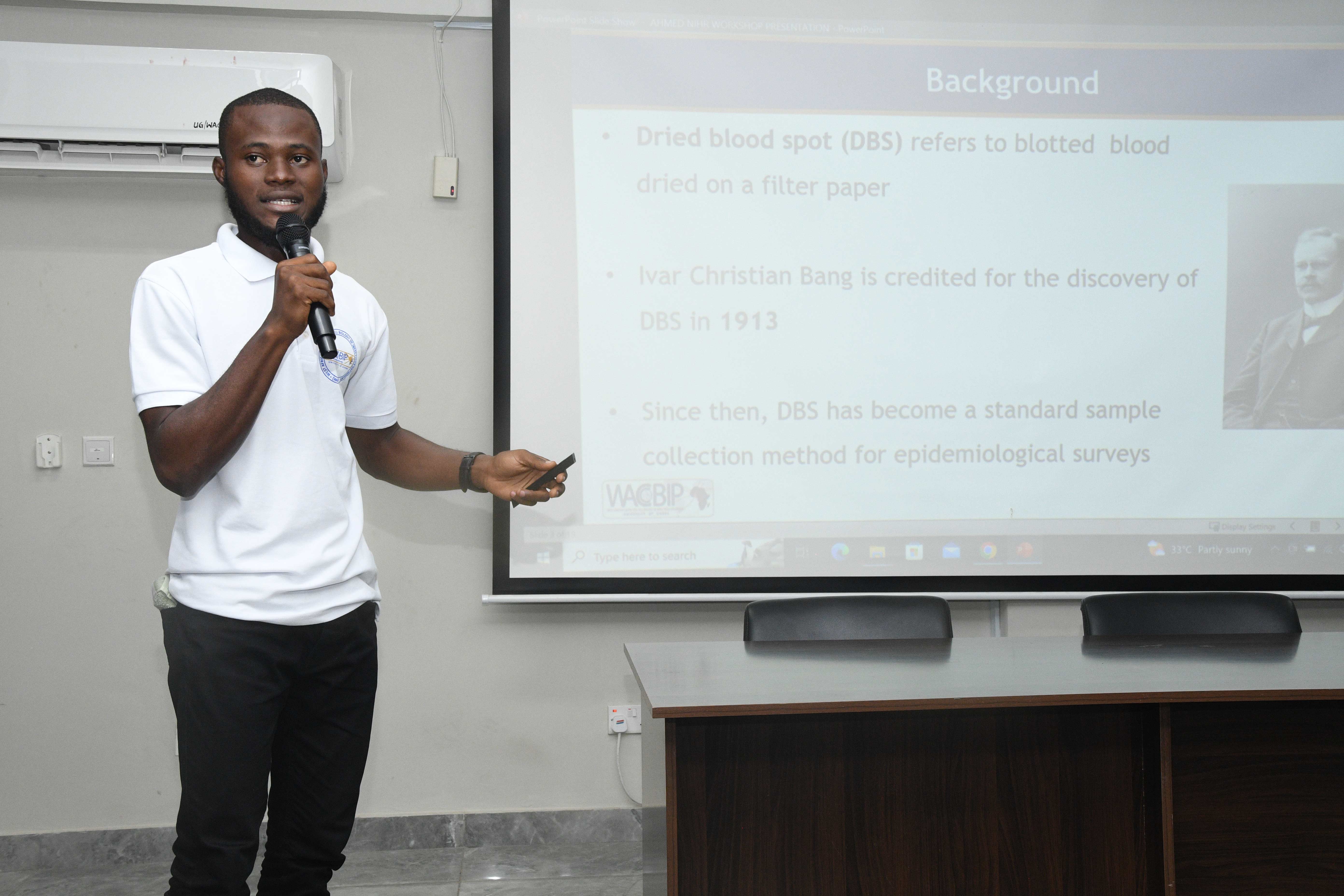
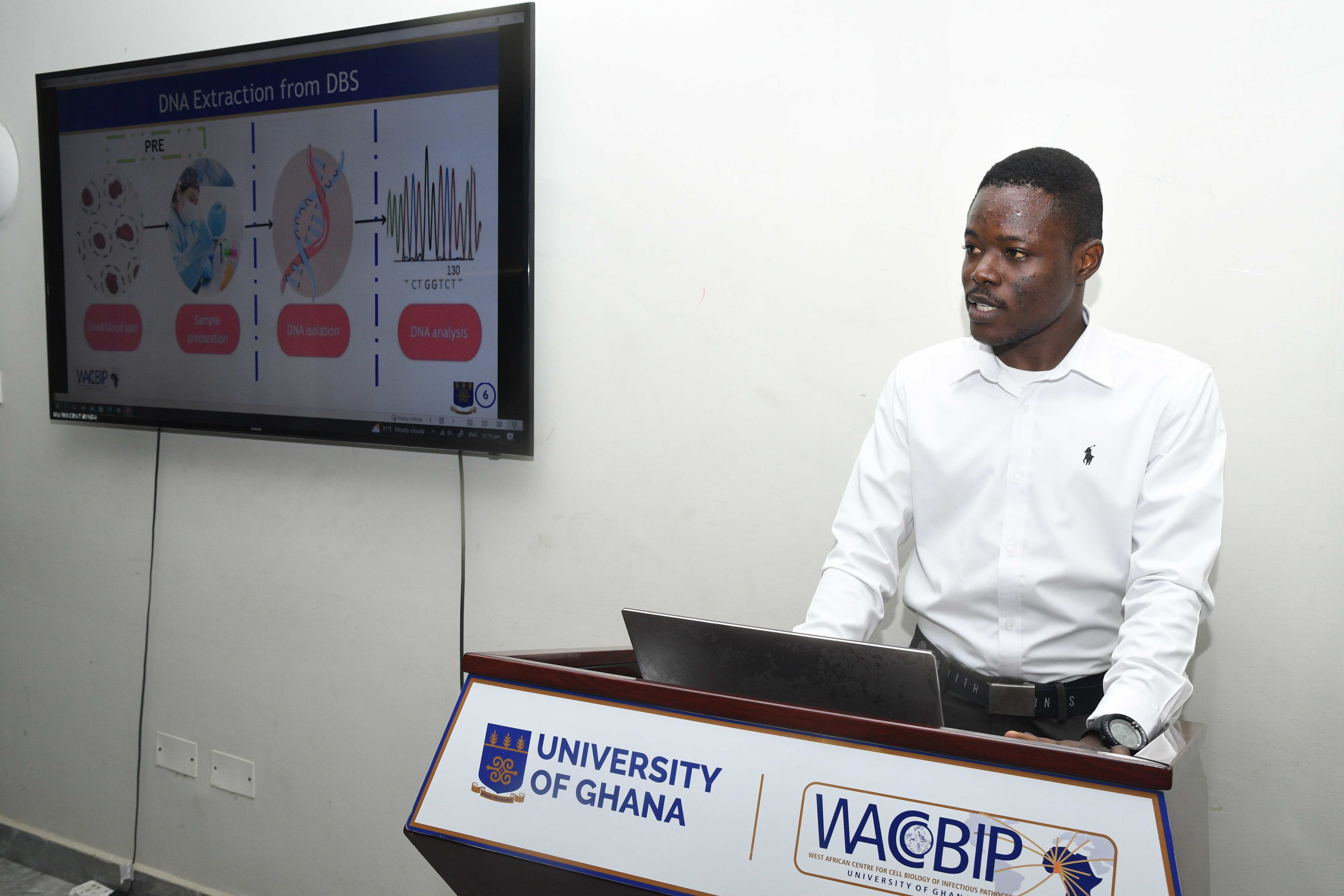
Figures 5- 7: Research Assistants; Violette M’cormack, Ahmed Osumanu, and Solomon Atampah taking participants through various topics.
There were also practical sessions on the preparation and handling of DBS from whole blood, and the preparation of thick and thin smears from whole blood.
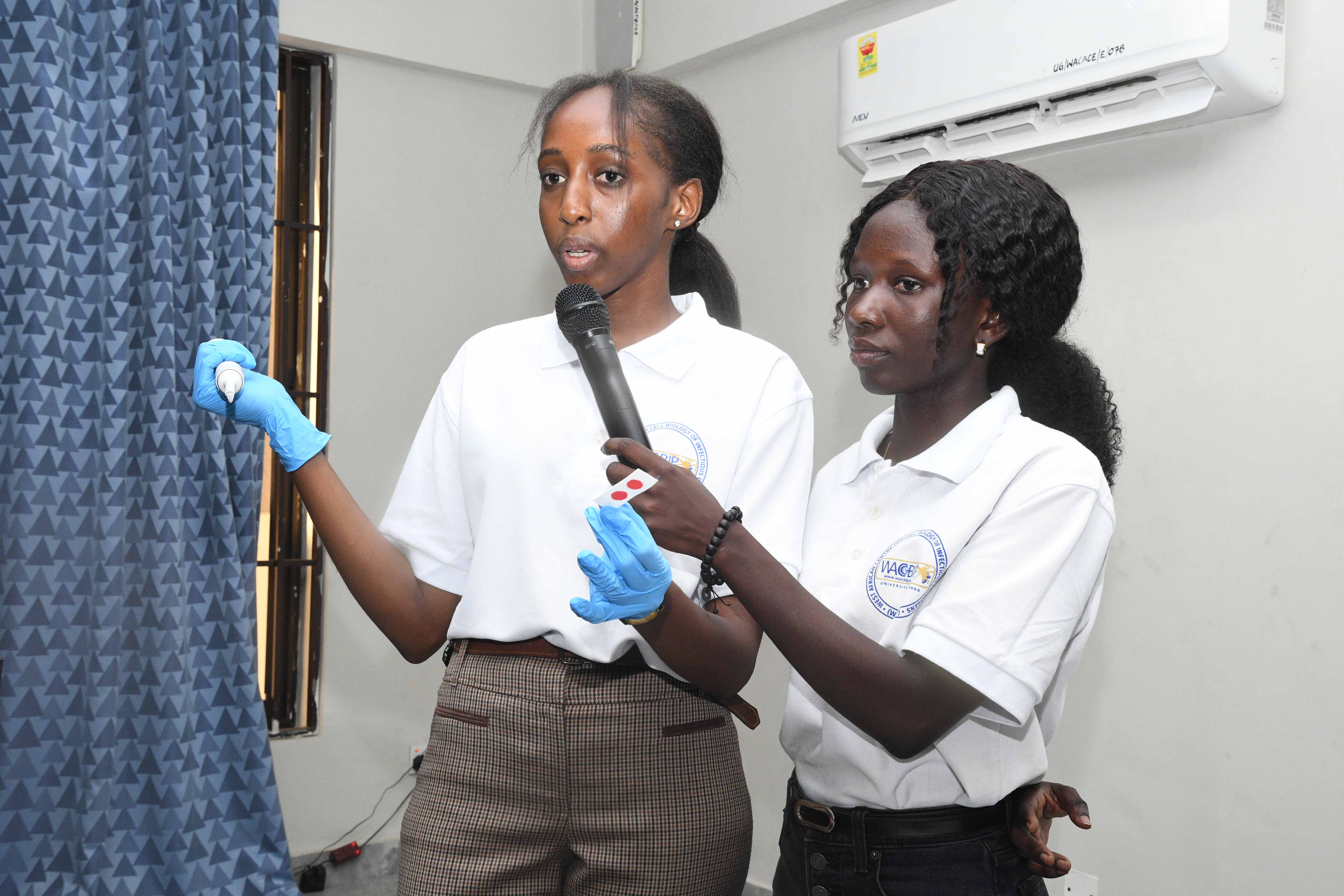
Figure 8: Research Assistants; Priscilla Aqua-Jackson and Angela Gyamfi demonstrating practical aspects of the Dried Blood Staining technique.
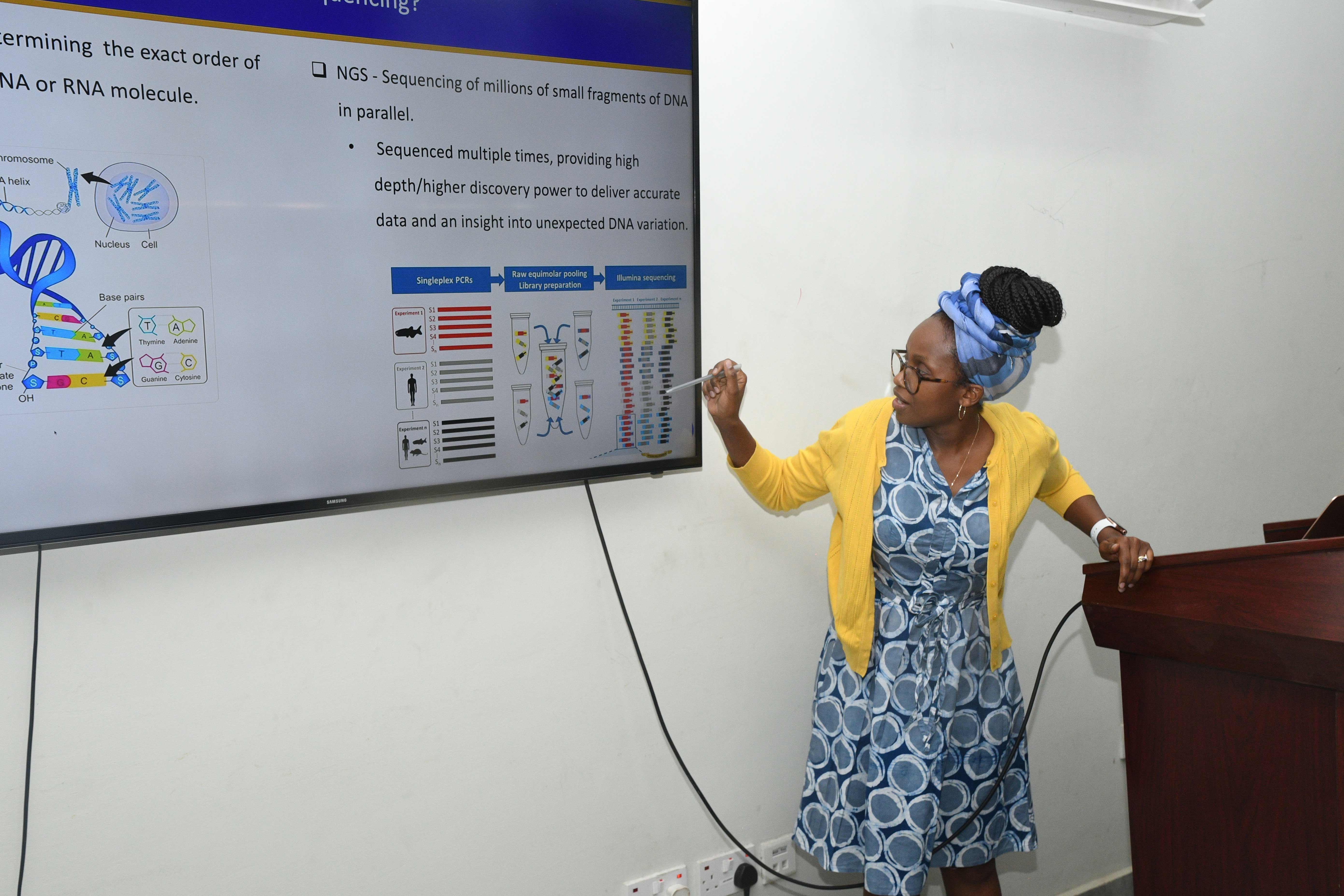
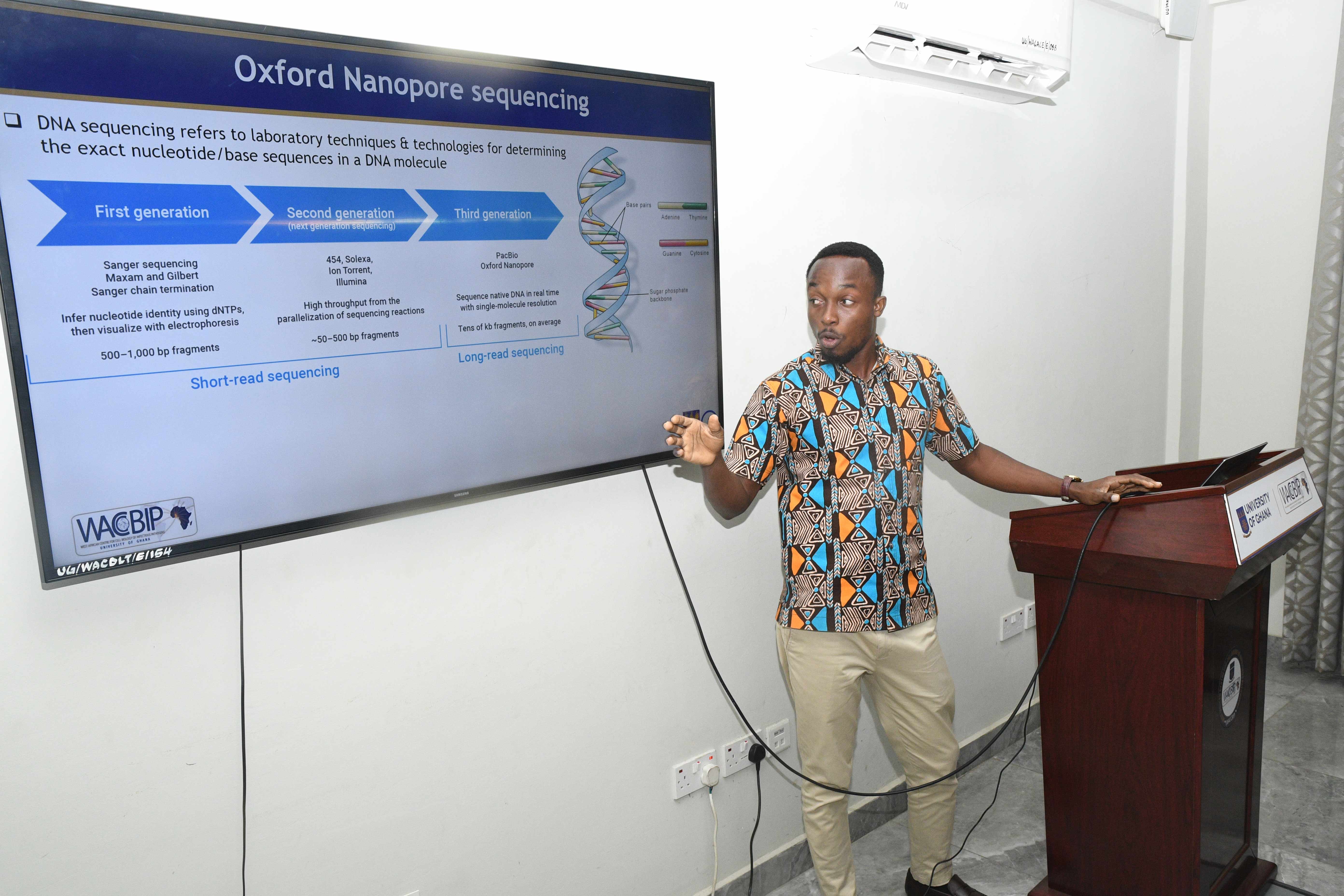
Figure 9 & 10: Joyce Ngoi, Next Generation Sequencing (NGS) Manager and Edem Adika presenting on sample sequencing.
Also, interactive sessions where participants shared their challenges in clinical laboratory practice were addressed by Dr Lucas Amenga-Etego and Dr Yaw Aniweh.
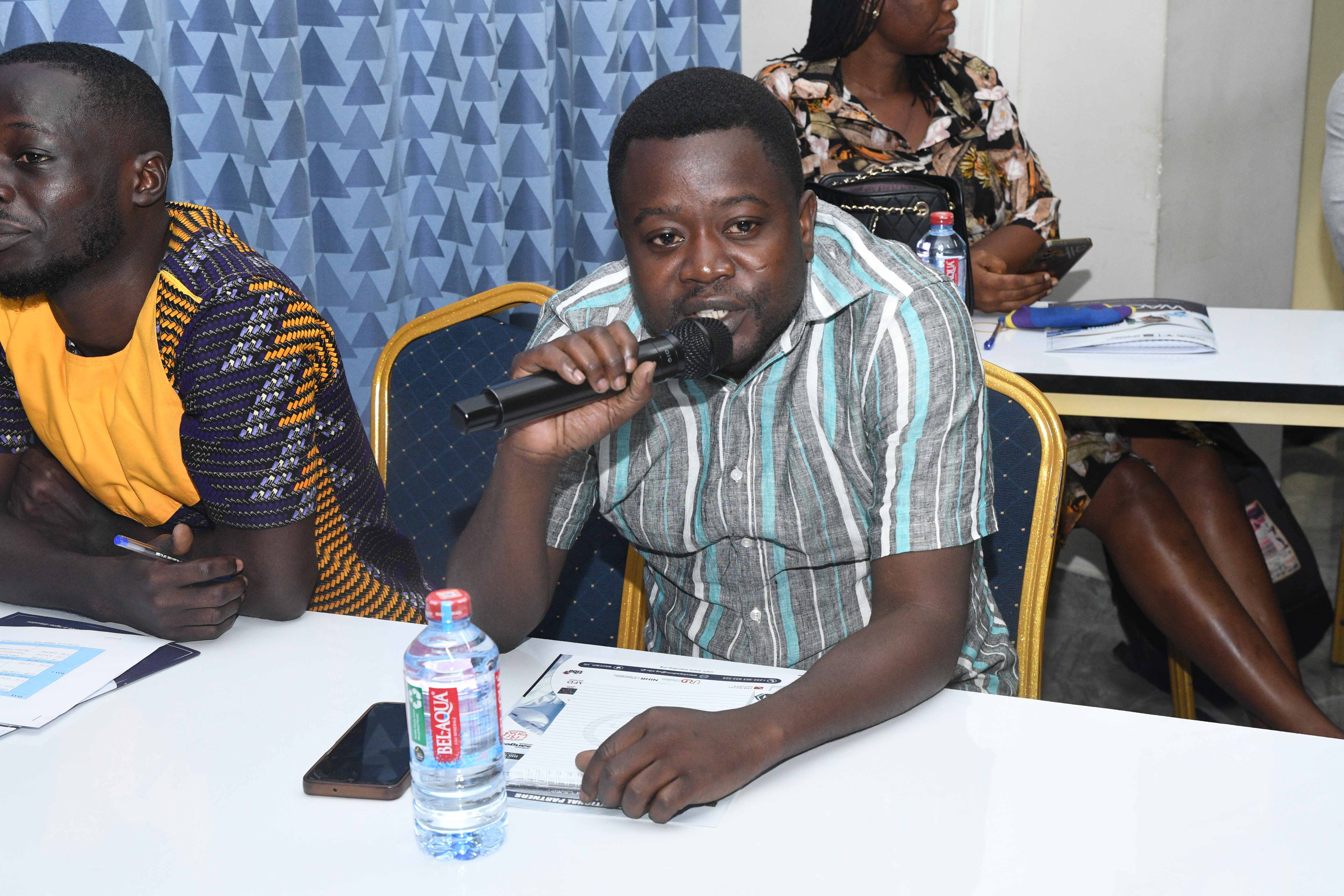
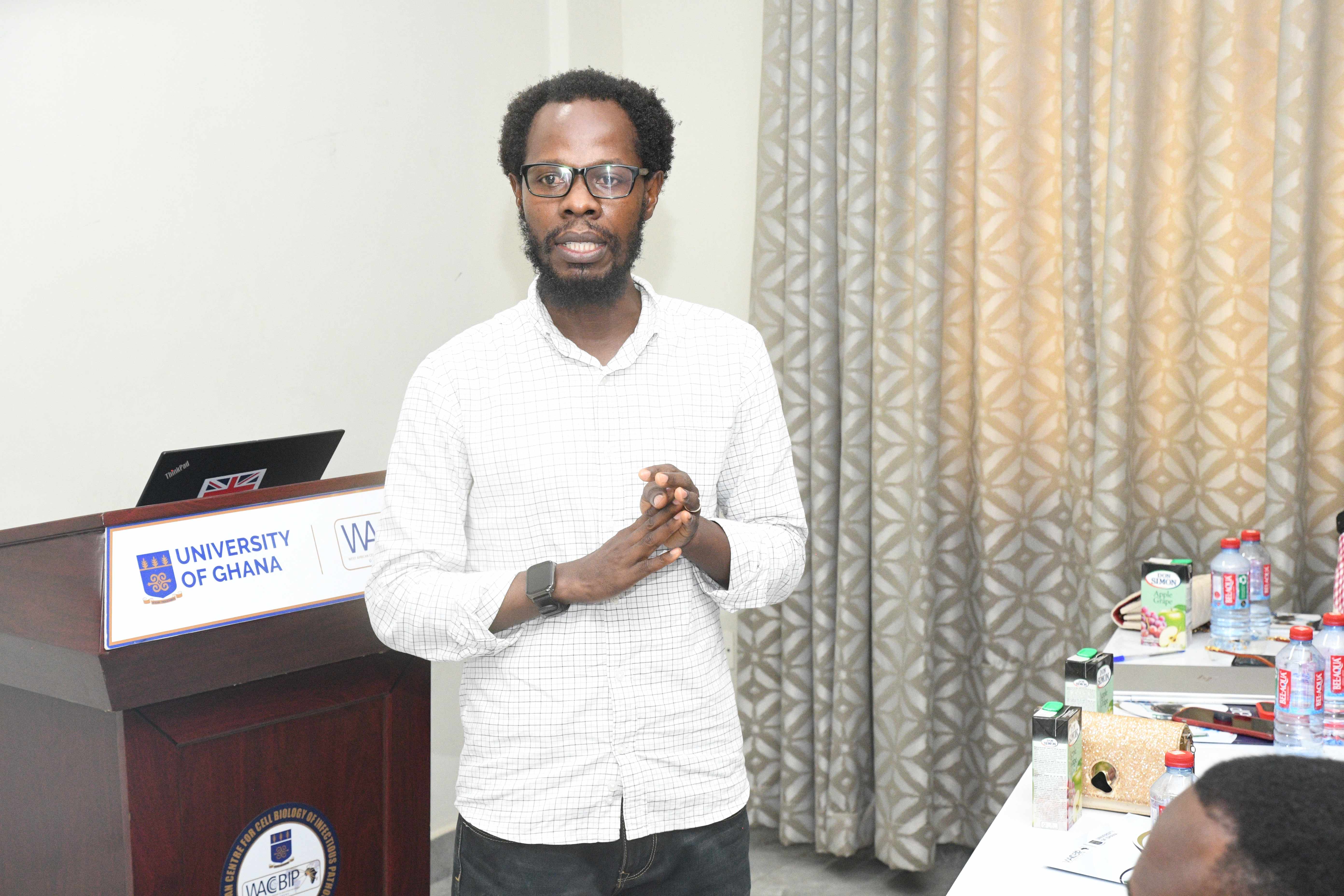
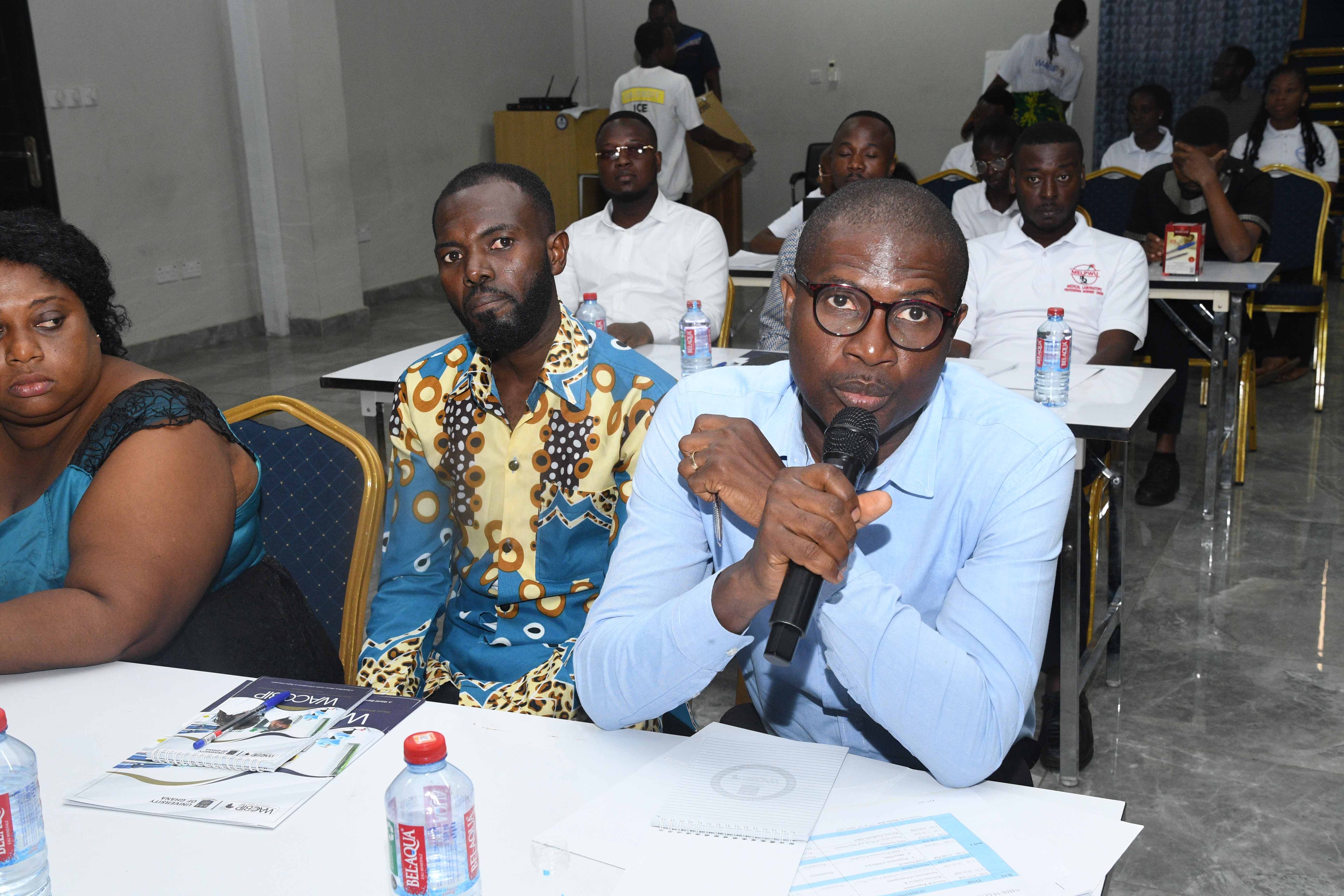
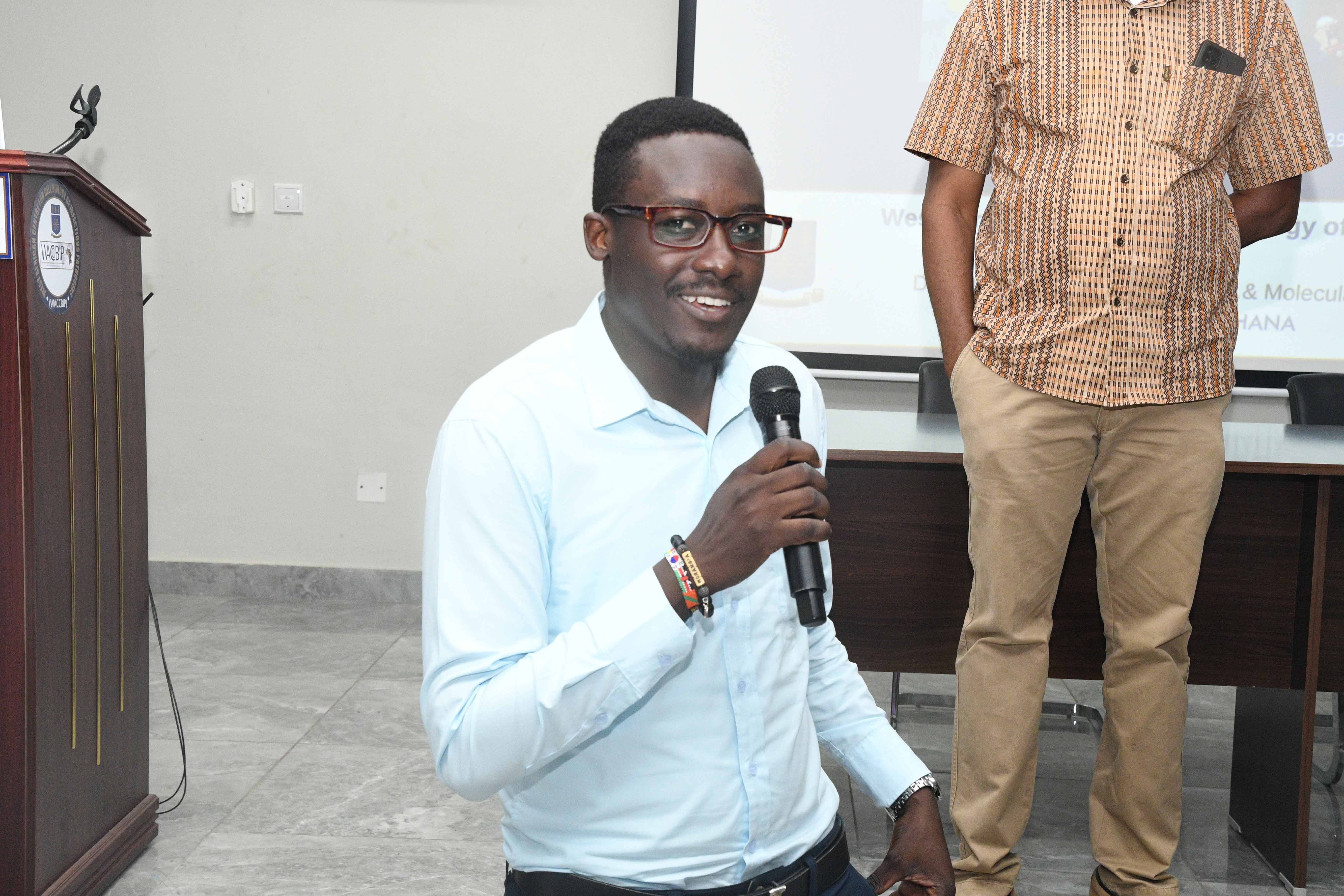
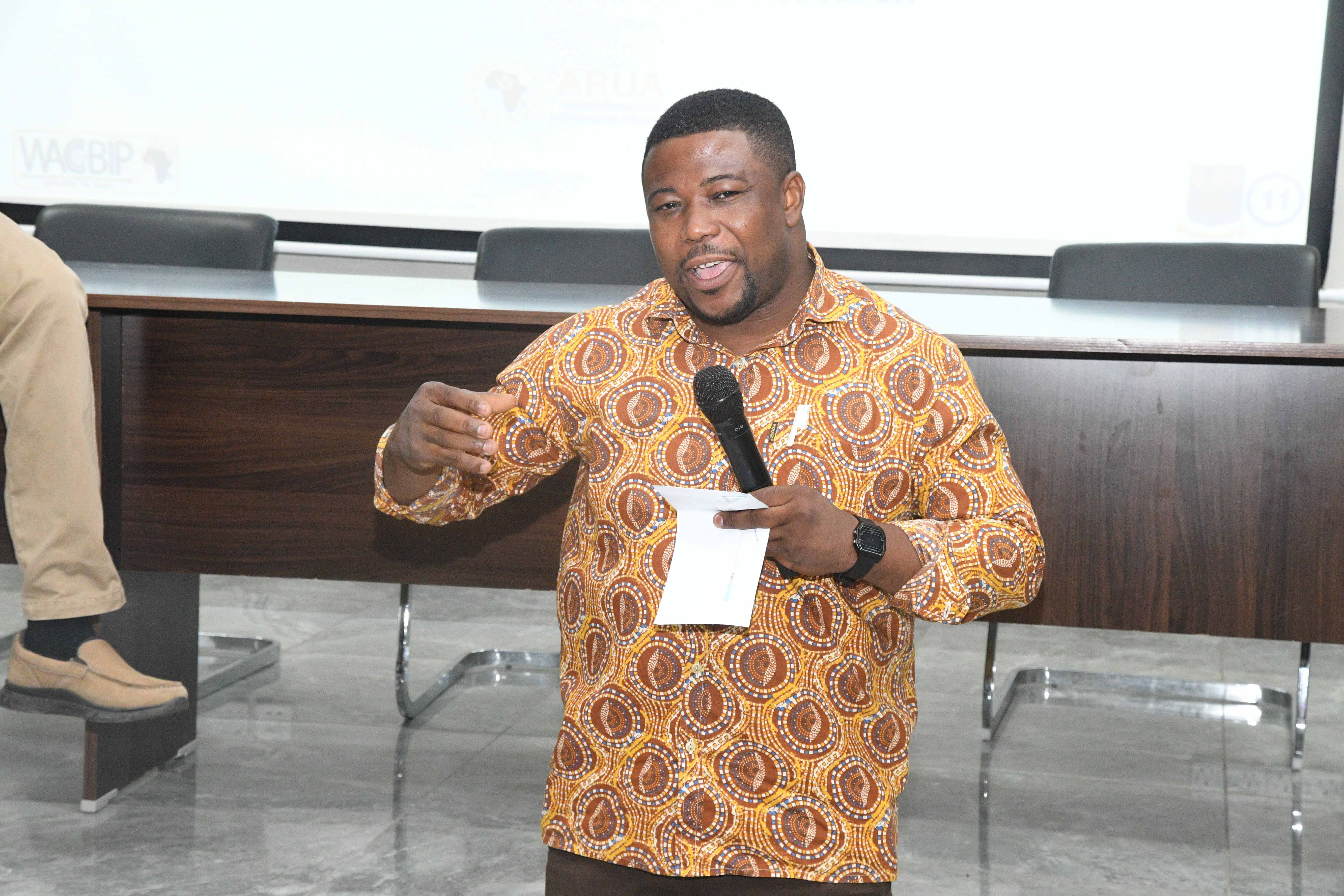
Figures 11-15: Interactive sessions with Dr Yaw Aniweh, Senior Research Fellow, WACCBIP & Haruna Abdul as well as other presentations including data management by Francis Dzabeng, Data Manager at WACCBIP.

